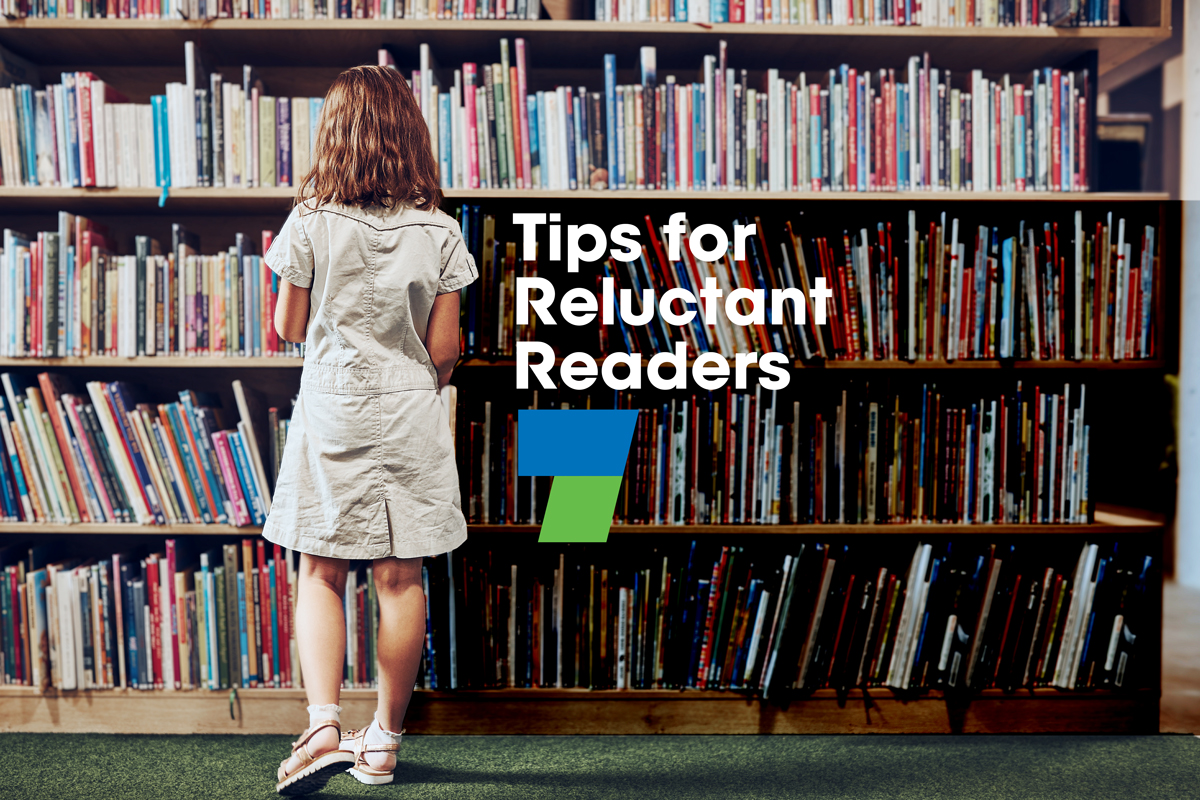Blog
6 Tips to Motivate Your Reluctant Reader

National Reading Month is here, and it's a great time to expose your kids to new works of literature and the wonders of getting lost in a great story 📖
Unfortunately, reading can be a struggle for many children. Short attention spans, difficulties with reading comprehension, or limited vocabulary are common culprits. For other children, it's a simple case of not enjoying the activity.
But all hope is not lost — here are a few ways to help those reluctant readers:
1. Let your child pick out books
Connect with your child's interests. Children are more likely to stay engaged with a book on a topic they find interesting. Go to the library and let them pick out a few books that grab their attention. They may not always select the books you'd prefer, but the first step is to help them see reading as a fun activity.
2. Use technology to your advantage
With students engrossed in technology today, show them how they can download books on a mobile device to enjoy. It can be a simple picture book or a full-length chapter book.
3. Start a Fun Project
Show students how reading can affect other subjects such as conducting a science experiment by adding ingredients together or following directions on a map to find buried treasure. Pick a project and have your child work through it by reading the guide or instructions step-by-step.
4. Read, Read, Read
Reading every day can help boost a student’s confidence in their reading comprehension ability. Shared reading allows the parent and child to not only read together but discuss the book and its contents. You can take turns reading pages or read silently together, stopping occasionally to discuss. Start small and build up as their confidence increases.
5. Get Lost in a Series
Introduce your child to a book series. Reading a series of books can be like watching a TV show. Options like A Series of Unfortunate Events, The Mysterious Benedict Society, and Harry Potter can get your child reading more to find out what happens to their favorite characters next.
6. Books Turned Movie
Some texts have become big budget films. Read the book and then watch the movie together to compare. Talk about how any differences in plotting or themes. Examples books turned movies worth picking up are Where the Wild Things Are, Charlotte's Web, Matilda, and The Hunger Games.
______________________________________


